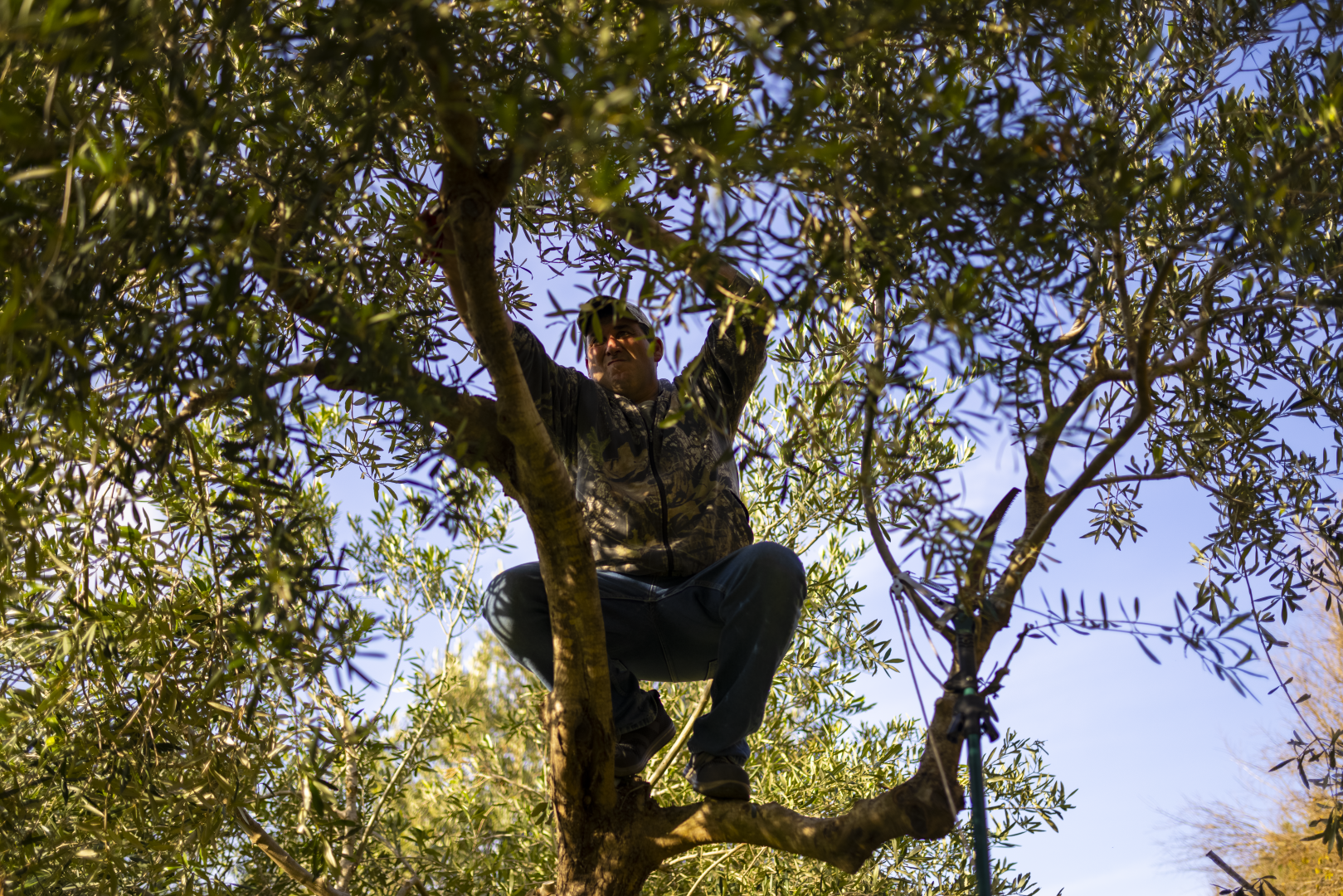George , a part-time farmer from Gozo, speaks to us on a December afternoon, the sun setting while we tour his olive grove. Located close to the iconic Ramla Bay in Gozo, this farmland has been used by his family, like many other local farmers, for generations. He tells me, “My great-great grandfather used to farm this area.”
Farming is more than just a source of income or a hobby for George; it represents his family’s story. He tells me, “I was brought up on this land,” and adds, “The promise I made to my grandfather on his deathbed was that this place will continue to be used”—a promise which he has fulfilled thus far as he and his family continue their generations-old tradition.
Although there is a long family history attached to the land, George’s farm is rented from landowners, posing a unique challenge. Using a system known in Maltese as qbila, whereby a fixed rent is passed down from one generation to the next, George has retained access to the land previously worked by his family. In recent years, however, many landowners have tried to claim back their land, even if they do not have any agricultural interests.
While George has never had problems with his landlords, watching other farmers lose access to their land leaves George with lingering doubts. He tells me, “What may happen in the future is uncertain.”
George’s family traditionally produced oranges but, eager to experiment, it was George who introduced olive trees to the farm. He took the plunge and sought training outside Malta in order to better understand how to cultivate a successful olive grove.
Early on in his journey as an olive farmer, George participated in a competition abroad, much to the dismay of his uncle, who had helped fund the trip. In a moment which he will never forget, his olive oil placed second from 400 other competitors. Spurred on by his early success, George has entered several other competitions since and his participation has drawn international interest to his Gozitan olive oil.
Walking through his land, it is difficult not to notice the sand from the nearby beach which infiltrates the soil. Although he primarily cares for his olive trees, George also grows traditional crops in the ground. The farm’s unique location, close to the sea, is advantageous. He explains that the salt provides his produce with a unique taste and also naturally helps with pest control.
George believes that entering the EU certainly brought about more opportunities but he is aware that it also presents new problems. He says that the lack of quarantine on importations poses a risk to the local agricultural landscape because of the possible introduction of new illnesses or pests which local farmers are not equipped to face.
One of the biggest drawbacks to farming, he feels, is that he is tied to the land. He does not have the freedom to travel for long periods or take time off—something which he is not sure the general public fully appreciates. “People think that food grows on a supermarket shelf,” he tells me.
Not one to give up, he has become a driving force behind grassroots efforts aiming to change the agricultural sector and he has recently been appointed president of the Gozo Artisan Network. He believes that “if local farmers don’t band together and realise that [they] have to work hand-in-hand, there’s no chance of survival”.
